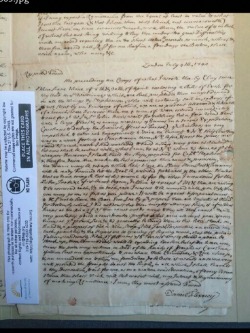Student Research Diary

As concerns my title for this brief missive, I beg my readers' indulgence as to its...ok hang on somebody has been reading way too much 18th century correspondence. Let's try that again. What archival research is "all about" varies as much as research projects vary. But I think what I am learning about it right now is likely to apply to some extent to most students, and something I couldn't have known in advance.
Archival research has always intimidated me. It's one of those things that, coming up through college and grad school, everyone around me just seemed to assume without mentioning it that everyone already knew how to do and had done. I never had a class in how to do archival research. Never had any advice about it. It just seemed like something we were expected to know how to do and take care of on our own, like putting on our pants or fixing lunch. It always seemed overwhelming to me--there's so much stuff--and likely to be seriously tedious.
My few brief experiences with it before now were positive, actually, but the thought of doctoral-level archival research...that was just something I couldn't wrap my head around in 1998 when I was finishing my M.A.
But this summer, it has to be done, and I am doing it--traveling to several different libraries on the east coast. I had a plan, I had endorsment for the plan, and the plan is working out I think. I'm finding what I had already identified and knew I needed to look at, based on secondary-source bibliographies, and that is certainly going to make the end product far stronger.
But the other part, I couldn't really anticipate--what the real difference would be from reading books (secondary sources) and reading the material on which those books are based. It's a sense--a sense of the world I'm trying to understand, a feel for it, a contextual apprehension of it. Reading merchants' business correspondence and flipping through their papers--their insurance policies, their ships' account books, port clearance papers--can get a bit tedious, yes. It's work. But it's also very much like getting to rummage around in their office while they're out to lunch---except that they've been out to lunch for 230 years. No book I've read can offer that same experience.
Most of what I'm reading will never make it in any direct way into the dissertation. Won't be quoted, won't be cited except in the bibliography, won't be mentioned specifically in the text. But it will be there, regardless, in my deeper and broader understanding of what I'm writing about.
So if you're a student, I can say that, once you've really digested the literature on your topic, and you're still keen to pursue that topic, something rewarding awaits you in the primary-source repositories that makes it worth the considerable trouble it takes to get into them.
Whenever I'm fortunate enough to get back in the classroom, I'll make sure I talk to my students about archival research. Not as some elite, mysterious rite that we can only speak about in hushed tones to the uninitiated, but as just another way to get at an understanding of a past reality--and a way that, like all the other ways, has its own unique advantage to offer. I will not assume that my students have any understanding or experience of archival work, and I will try to get them interested in it and not leave them secretly afraid of it.
So archival research shouldn't be about walking on hot coals so you can get accepted into the club. It should be about having an access to the past you didn't have before. That's really all it needs to be.